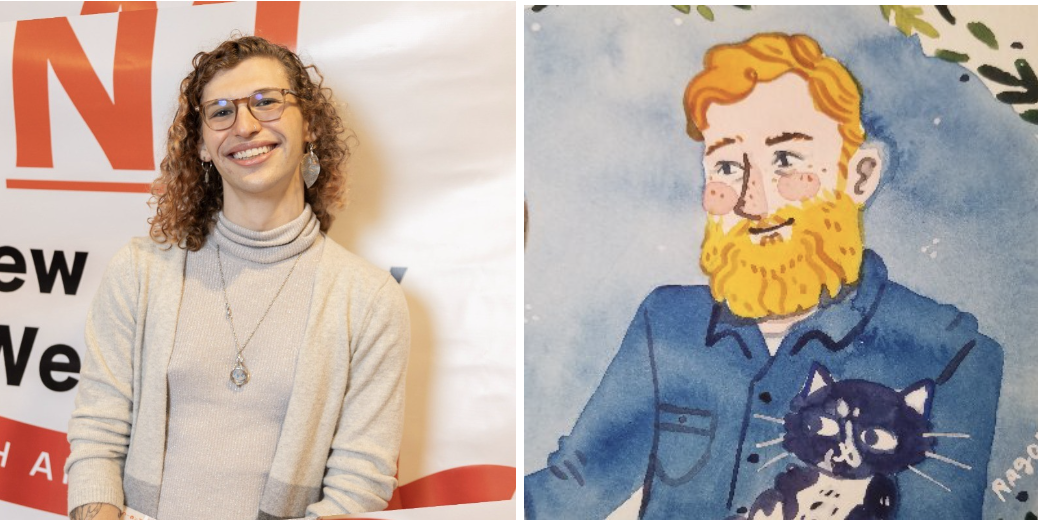
Tiny News Collective exists to support early-stage news entrepreneurs all across the United States who are raising their hands to provide community-focused news and information and places for community connection. We are who we are because of the founders we serve. And we want the journalism field, the civic information space and beyond to know about the creative, impactful work of these founders. To that end, we are thrilled to highlight their stories through an ongoing series of profiles and features.
For our latest feature, we talked with Rowan Zeoli and Chase Carter of Rascal, launched in February 2024 as an independent, reader-supported, worker-owned outlet for journalism about tabletop roleplaying games and the people who make them. Their goal is to continue the vital work of investigating the tabletop game industry while also building space for criticism, culture reporting and lighthearted blogs that wouldn't survive anywhere else. They also ran a radically transparent fundraising campaign recently.
1) What's the origin story for Rascal and how it came about?
Rowan Zeoli: Rascal was born in the darkness of the current media landscape. Our co-founder Lin Codega was laid off from their job at i09, where they published some of the most industry-shaping investigations the TTRPG [tabletop role-playing game] space has seen to date. I had been freelancing for a few sites — some paid and others were volunteer — and had recently quit a staff writing job where it was clear they were not looking for journalism, but were looking to write promotional content rather than critical news — a common part of entertainment coverage in general.
Chase, as he’ll tell you, was perma-lancing for a site called Dicebreaker (RIP). It quickly became clear that journalism for tabletop gaming (as well as journalism in general) was falling into the pit of venture capitalism. Lin reached out to me, we sat on the phone for what could have been hours, and decided that we were going to start our own outlet. We shopped it around to a few people before realizing that any individual investor would undermine the editorial independence of what we wanted the site to be, and landed on the reader-funded model. Thankfully, we had a huge outpouring of support.
Chase Carter: Rascal wasn’t just a sexy pitch from a journalist and peer I admired; it came at an extremely opportune time. I had just lost my contract reporting job at Dicebreaker alongside too many other excellent journalists within GamerNetwork. I’d had my fill of building corporate-owned careers in the brief spaces between layoffs, buyouts and venture capital bloodsucking. Rascal was the ultimate alternative: a chance to create a newsroom decoupled from the expectations of investors and unshackled from advertising and Google’s increasingly amoral sovereignty over discoverability.
Lin called me with the pitch in December 2023, so the lifeboat was waiting when Ziff Davis began its cynical fat trimming in May of the following year. And so I was back to working a single job, putting all of my proverbial eggs in a Rascal-shaped basket. Trading the stifling “security” of corporate ownership for the freedom to fail or succeed on our own terms has been worth the stress and heartache, so far. We’ve only grown — even if slower than you might imagine — and this outlet saved me from very likely leaving journalism for good.
2) What's a recent story you published that had an impact in the community?
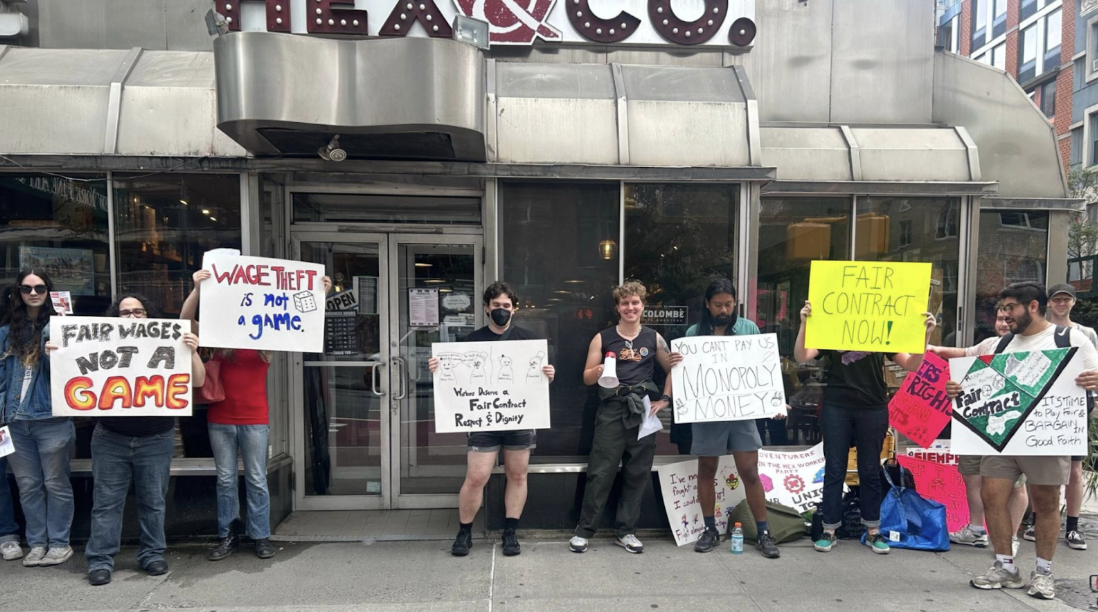
Rowan Zeoli: Oof, finding one story in particular is hard. I’ll list out a few that I think really brought a perspective to the community that hadn’t been there before. We’ve been covering the developments surrounding the Tabletop Workers United union, who are facing severe union-busting efforts. I also covered a large controversy that occurred with a recent awards show in the tabletop space regarding an online hate campaign against their support of Palestinians. I’ve also covered the impacts the climate crisis has had on tabletop creators, notably one large publisher in Brazil whose warehouses were flooded and the recent impacts of Hurricane Helene. There’s a bunch of other cultural stuff I’ve covered, like the comparisons to Actual Play media and Porn. So yeah.
Chase Carter: Well, Rowan stole a lot of the best stories already! I’ll add a recent contributor piece discussing the relatively young tabletop RPG scene in Iran, along with another contributor who found a play-by-email session of TribeNet that players had kept running for multiple decades. The community impact of both of these is less readily apparent in that they didn’t start a movement, uncover a conspiracy or speak truth to corrupt power. Instead, they shined a light into a dusty corner of tabletop’s weird amalgam of artistic expression and playable objects. I’ll dodge the canard that “nobody takes games seriously” and instead posit that these stories allow us to appreciate culture and fun simultaneously.
3) How do you use transparency to build trust with your audience?
Rowan Zeoli: One of the biggest elements of this has been realizing how supportive our audience is of us taking care of ourselves. As a small team, we can only keep up with so much before we burn out, and we’ve had multiple people explicitly tell us that they want us to take time off or reduce our output of articles explicitly, so we can sustainably continue covering the industry. It’s been really difficult to unlearn that capitalistic “go-go-go” mindset, but telling our audience when we’re not doing well (mentally and physically) they’re incredibly supportive.
Chase Carter: Additionally, we’ve been fairly open with the business side of things: sharing pledge drive subscription numbers and general capacity being two easy examples. That’s to deflate the concept that we’re some petit bourgeois news agency swimming in free games and money, but also because it helps develop compassion between us and the audience. We aren’t a faceless corporation. We are four people and a dream, and folks seem to appreciate that when we talk about living wages and being able to quit our part-time jobs. Is it a bit of parasocial relationship building? Sure, but in a way that’s sustainable and healthy — I want our audience to know they are supporting real people with a passion for serving the industry.
4) How did your recent pledge drive go and what were some of the highlights?
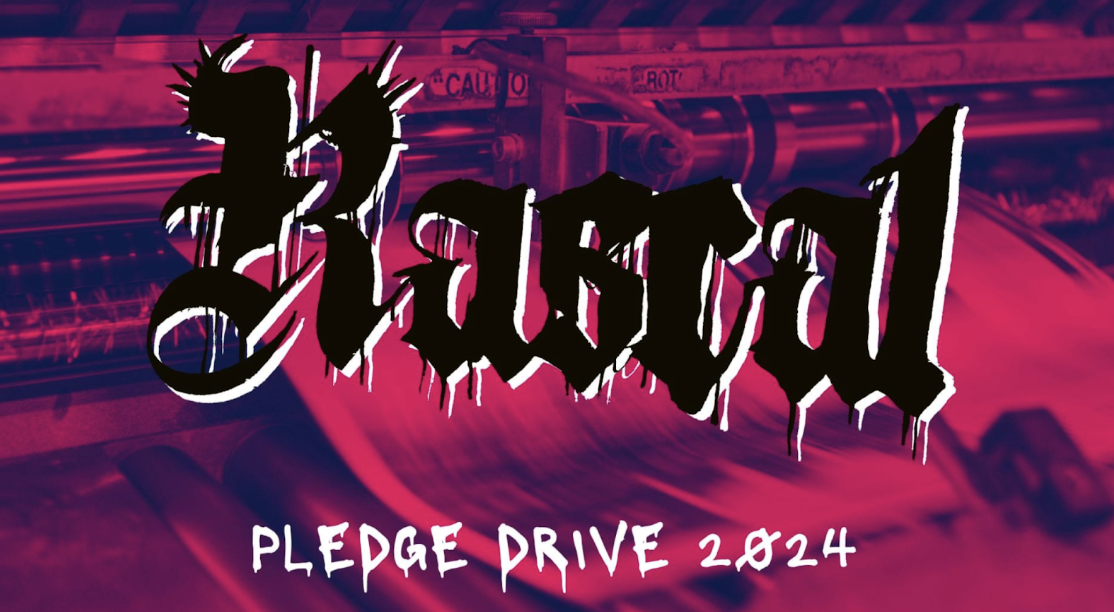
Chase Carter: Like everything else when you own your own business: good, but not as good as you might have hoped. We developed a minimum threshold of success, internally, and new subscribers rocketed past that goal within the first couple of days. After that, things slowed to a trickle and then picked up some steam toward the end. So, much like the general arc of a crowdfunding campaign in that way! We allowed ourselves to experiment in form, releasing a podcast demo that was half-performance/half-news, along with Twitch streams and watch-alongs, just to see what the audience connected with. Was it successful? Absolutely. Did it transform what Rascal could accomplish overnight? No, but we never expected such radical success.
Rowan Zeoli: Honestly, the biggest highlight of the campaign was the fact that our audience stuck around after we took a bit of a hiatus a few weeks after. One of the biggest notes from our audience was that we needed to take better care of ourselves and slow down our output to keep this sustainable and not burn ourselves out. And we did that, operating at a fractional capacity for the better part of a month, and when we returned, we almost immediately made up the lost subscribers. Just a good reminder that the “go-go-go” mindset of capitalism is never actually the best course of action with a small team and a dedicated, supportive audience.
5) What's your vision for the future of Rascal and the community?
Chase Carter: I’ve mentioned this to Rowan and Lin before: I want Rascal to find and cultivate my replacement. By that I mean I want our publication to foster the next generation of tabletop journalists and critics, giving them the skills and experience to make a genuine career out of covering this industry. And then, within five years or a decade they’ll either start their own outlets, carve out a niche in existing spaces, or join a burgeoning Rascal team so that I can become a jaded managing editor who spits out one curmudgeonly op-ed per month. Digital news, and especially hobbyist media, has been logged down to the stumps. I am planting trees that will shade other writers, other voices, so that they won’t have to wander the same barren field that bore me hardly much more than cynicism.
Rowan Zeoli: I agree with Chase so much. I want more than anything else for there to be a healthy, sustainable media industry — really every industry. If we can be one data point in an overwhelming shift away from exploitative models of production, rather than just gristle in a content mill, I would be so thrilled.
In a more TTRPG-specific note, I want the art form to be more widely known, respected and, importantly, funded. So much of the incredible art that is being made by tabletop folks, whether that’s designing games or making actual plays, is done as a second job or entirely out of passion. They deserve the type of acclaim and support that artists in other fields do, and hopefully with the attention and care we offer to creators who otherwise go unnoticed can make this a sustainable path for more people.
Learn more about other TNC founders by reading these stories:
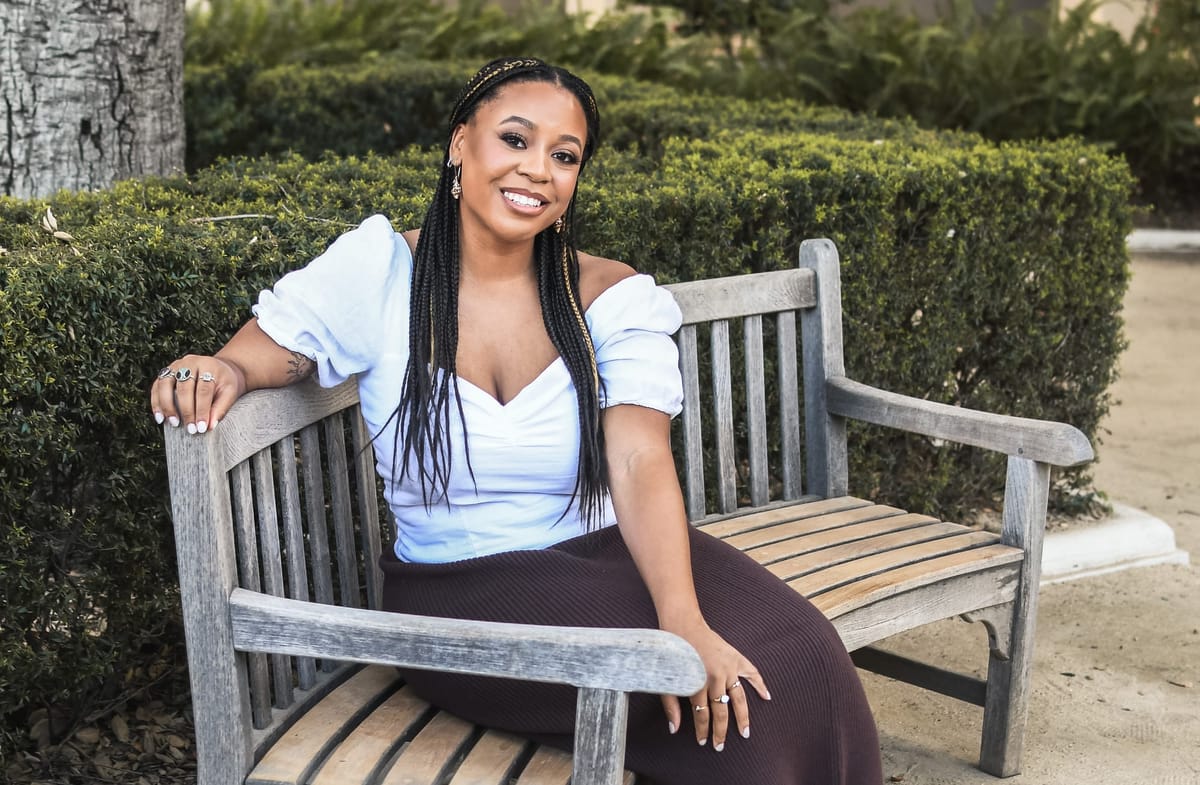
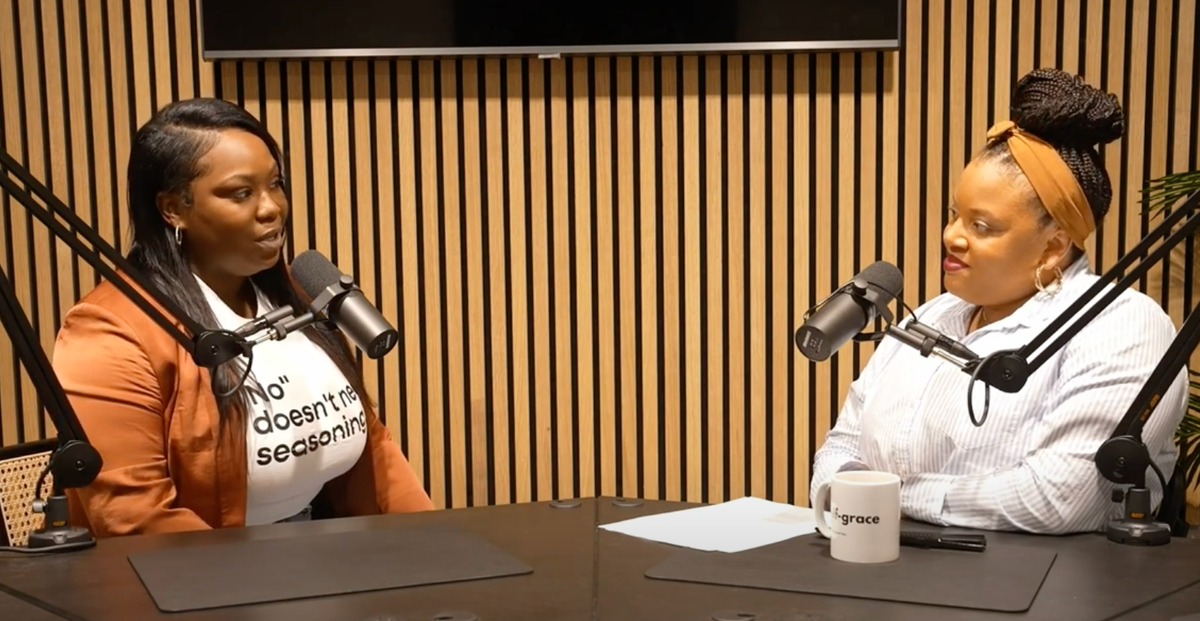
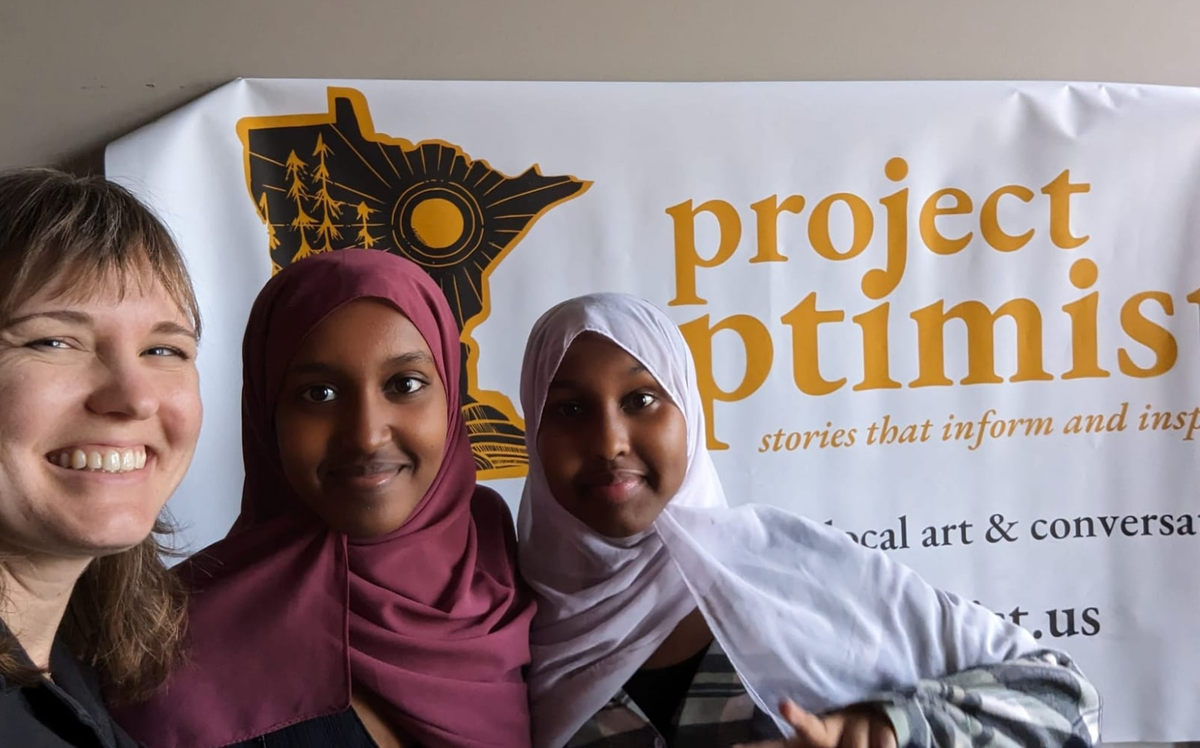
Sign up for our monthly newsletter for ongoing updates, announcements, and resources for newsroom entrepreneurs.